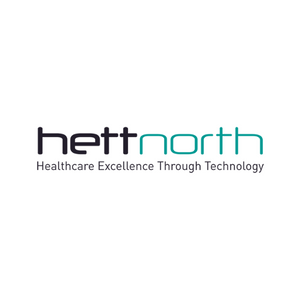Digital transformation has become a driving force in reshaping the landscape of healthcare. Beyond the adoption of technology, it represents a fundamental shift in how healthcare is delivered, managed, and experienced. In this blog, we will explore eight key benefits of digital transformation in healthcare, shedding light on how these advancements contribute to a more efficient, patient-centric, and innovative healthcare ecosystem.
Benefits of Digital Transformation in Healthcare
-
Enhanced Patient Care and Experience
Digital transformation in healthcare puts patients at the center of the care continuum. Telemedicine and virtual care platforms enable remote consultations, making healthcare more accessible to patients, especially those in remote or underserved areas. Additionally, digital health records and mobile health apps empower individuals to actively engage in their health management, fostering a more collaborative relationship between patients and healthcare providers.
-
Improved Access to Healthcare Services
One of the significant advantages of digital transformation is the improvement in access to healthcare services. Telehealth solutions break down geographical barriers, allowing patients to connect with healthcare professionals remotely. This is particularly crucial for individuals with limited mobility, chronic conditions, or those in rural areas who may face challenges in accessing traditional healthcare facilities. Digital tools facilitate timely consultations, reducing waiting times and enhancing overall healthcare accessibility.
-
Efficient Health Information Management
The adoption of Electronic Health Records (EHRs) is a cornerstone of digital transformation in healthcare. EHRs streamline health information management, providing a centralised repository for patient data. This not only eliminates the inefficiencies associated with paper-based records but also enhances the accuracy and accessibility of patient information. Healthcare providers can quickly retrieve vital data, leading to more informed decision-making and improved patient outcomes.
-
Predictive Analytics for Proactive Healthcare Management
Digital transformation leverages data analytics to unlock insights from vast amounts of healthcare data. Predictive analytics, powered by machine learning algorithms, enables healthcare professionals to identify trends, predict disease outbreaks, and proactively manage patient health. This shift from reactive to proactive healthcare management allows for early intervention and personalised treatment plans, ultimately improving patient outcomes and reducing the burden on healthcare resources.
-
Optimised Resource Allocation and Operational Efficiency
Digital transformation optimizes resource allocation within healthcare organisations. Automated processes, such as appointment scheduling, billing, and administrative tasks, reduce the administrative burden on healthcare staff. Additionally, data-driven insights enable better management of healthcare resources, ensuring that facilities are adequately staffed and equipped to meet patient needs. This results in enhanced operational efficiency and cost savings.
-
Facilitation of Remote Monitoring and Wearable Technology
The integration of Internet of Things (IoT) devices and wearable technology in healthcare exemplifies the transformative power of digital tools. These devices enable continuous remote monitoring of patients, collecting real-time data on vital signs and health metrics. This proactive approach allows healthcare providers to detect early warning signs, track chronic conditions, and intervene promptly, preventing complications and hospital readmissions.
-
Innovations in Telemedicine and Virtual Care
Digital transformation has propelled the evolution of telemedicine and virtual care solutions. Video consultations, remote diagnostics, and virtual follow-ups offer a level of flexibility and convenience previously unseen in healthcare delivery. Patients can receive expert consultations without the need for travel, leading to reduced healthcare costs, improved patient satisfaction, and a more accessible healthcare system.
-
Acceleration of Medical Research and Innovation
Digital transformation accelerates medical research and innovation by facilitating data-driven insights and collaborative research efforts. Advanced analytics and artificial intelligence aid researchers in identifying patterns, discovering new treatment modalities, and expediting the drug discovery process. This acceleration of innovation contributes to staying ahead of emerging health challenges and continuously improving the quality of healthcare delivery.
Challenges and Considerations
While the benefits of digital transformation in healthcare are substantial, challenges must be navigated carefully. Concerns related to data security, patient privacy, interoperability, and the digital divide must be addressed through robust cybersecurity measures, compliance with regulations, and inclusive technology adoption strategies.
Digital transformation is not just a technological upgrade; it is a fundamental shift that enhances the entire healthcare ecosystem. From improved patient care and accessibility to optimised resource allocation and groundbreaking innovations, the benefits of digital transformation in healthcare are profound. As healthcare organisations continue to embrace these advancements, the future promises a more connected, efficient, and patient-centric healthcare landscape that prioritises better outcomes and improved quality of life for individuals around the globe.
Find out More About Digital Transformation in Healthcare
Join us at HETT North on 28th February in Manchester to find out more about digital transformation in healthcare.
Register for your FREE pass now to enjoy:
- 40+ hours of CPD-accredited content across 6 content streams
- 100+ innovative suppliers
- 1-2-1 meeting opportunities with over 1,400 like-minded peers
- 100+ expert speakers including Jenny Chong, Masood Ahmed & Natasha Phillips
%20(1).png?width=500&height=58&name=HETT%20insights%20logo%20RGB-04%20(1)%20(1).png)


